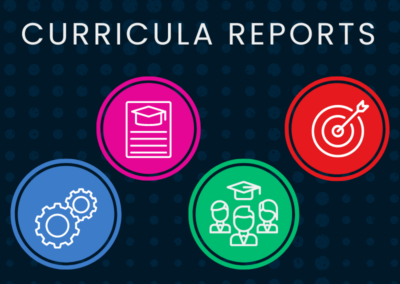A shifting mindset
The report notes a fundamental and very important change in the composition of many international schools. It’s a change that has occurred in many businesses as well. In many schools, expat children are making up a shrinking share of the student body as the number of children from the host country increases. In some schools, faculty and administrators from the local community are also increasing in number. While some countries continue to limit the number of local children who can attend international schools, the trend towards the growing importance of the local community within schools presents challenges and offers fresh learning opportunities.
The challenges relate mainly to power –the power to decide the curriculum, to choose activities, to determine even what the children will eat or how they will dress. It amounts to a decolonization of the community. It can be awkward for expats who had exercised power. It can mean fewer expat teachers, fewer spots for expat children and a more competitive admissions system. In the context of a business, it means more local hires and fewer expats parachuted in to run affairs. It reflects a stronger pool of local employees, who with time assume positions traditionally held by expats.
The opportunities should more than offset the challenges. Expat children and teachers, instead of imposing their world view and living in a bubble, have more chances to meet families from the host country. This requires a shift in mindset, from the school being an oasis or haven away from the local surroundings, to being an integral part of the local community. School administrators need to understand that community and take steps to ensure the school sits comfortably as a “good citizen.” As the school hires more teachers from the local community, it may have to review its pay packages, which in many schools were traditionally more generous for expats. There can be opportunities to shape the curriculum so that it aligns more closely with the host country’s requirements.
For students, there can be increased opportunities to interact with the host country. At News Decoder, we encourage students to do reporting close to home and to resist the temptation to imitate journalists who are working for big international or national organizations. In the case of students attending schools with an increasing share of children from the host country, there are more opportunities to immerse oneself in the surrounding community as the walls between the school and that community disappear. But students have to be given the tools to do research and reporting in the local community.
Reporting assignments can transport an expat student into the local community, forcing the student to educate themselves about the community and in some cases even to work in the local language. It is a far cry from the school outings of the past when students and teachers would gawk at locals and congratulation themselves on their cultural sensitivity and understanding. Without taking undue safety risks, students today can leverage their connections to a greater number of peers from the host country to multiply their learning opportunities.
Measuring international mindedness
Measuring international mindedness will always be a challenge, but tools have been created to help us understand whether our efforts are worthwhile, even if they are lacking in some respects. At News Decoder, we use the tools described by this working group in 2017. They are based on eight global citizenship competencies identified by a collegium of 90 organizations and experts co-convened by the UNESCO, the Brookings Institution and the United Nations Secretary General’s Global Education First Initiative’s Youth Advocacy Group. We have mapped out how activities at News Decoder led to certain outcomes that support the eight global citizenship competencies:

However, while we believe our activities strengthen those competencies, we have not yet perfected a system for measuring the impact. I suspect this is a challenge for many schools as they look to increase the international mindedness of students and teachers. We would be very interested in learning more about how to measure the effectiveness of our global citizenship efforts.
 By Nelson Graves, Founder and President of News Decoder
By Nelson Graves, Founder and President of News Decoder




